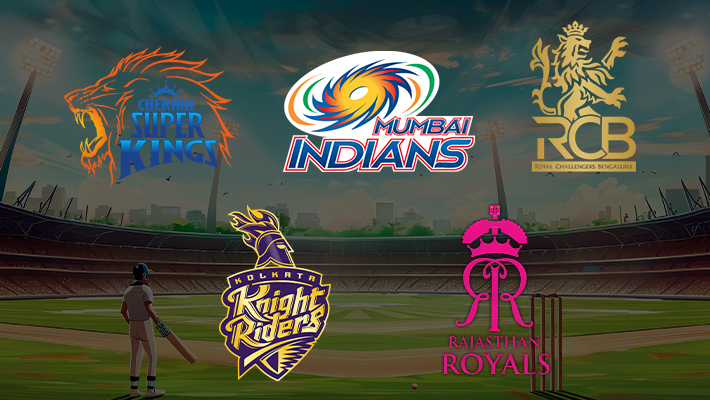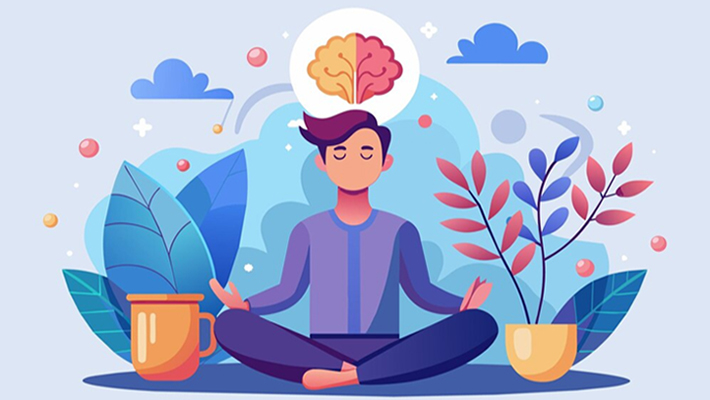
In today’s world, mental health has been a topic that’s been discussed a lot. Until the recent past, unlike physical health, mental health was not given great importance. So, what makes mental health so important?
Mental health serves as the main force that determines your methods for coping with stress as well as your relationships with others and decision-making processes. The issues impact your life as well as the people surrounding you. Mental health depends on a lot of factors like your work-life balance, emotions, thoughts, feelings, and opinions on anything.
The biggest issue with mental health problems is that you do not realize when it gets to you. It can be the most basic things that start on a grassroots level eventually leading to critical situations.
Some of the symptoms can be
- Low levels of concentration
- Frequently feeling Anxious
- Withdrawal from friends and activities
- Significant tiredness, low energy or problems sleeping
- Detachment from reality (delusions)
- Inability to cope with daily problems or stress
- Trouble understanding and relating to situations and to people
- Problems with alcohol or drug use
- Major changes in eating habits
- Suicidal thinking
Each generation has something new to offer. In that way, the biggest takeaway from the “Gen-Z” batch is that realizing mental health is equally important as physical health. Over the past few years, we have seen some top celebrities come out stating that they undergo therapy and it is not a sin.
Let us have a look at what they have to say:
“I found that, with depression, one of the most important things you could realize is that you’re not alone. You’re not the first to go through it; you’re not going to be the last to go through it. And oftentimes — it happens — you just feel like you’re alone. You feel like it’s only you. You’re in your bubble. And I wish I had someone at that time who could just pull me aside and [say], ‘Hey, it’s gonna be OK. It’ll be OK.”
– Dwayne ‘The Rock’ Johnson
“It doesn’t have to take over your life, it doesn’t have to define you as a person, it’s just important that you ask for help. It’s not a sign of weakness.”
– Demi Lovato
"Mental health is not a destination but a process. It's about how you drive, not where you're going. It wasn't easy, but it was necessary. I was not afraid to tell the world that I wanted to let others know they are not alone."
– Deepika Padukone
We often look up to celebrities and idolize them. When people like them can seek help, what’s stopping you? But before it goes to such a troublesome state, why don’t we focus on the ways we can improve our mental health and avoid such sickness? Here are some tips that will alter your life forever!!
Fuel right, rest tight, and move more!
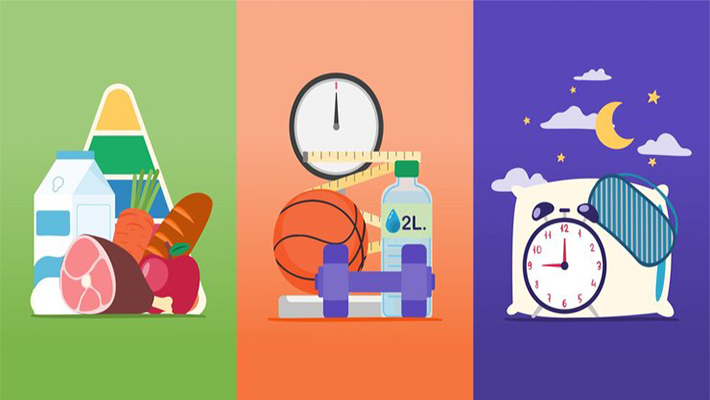
Eat healthy, sleep well, and exercise regularly. During our schooling, we would have come across this term called balanced diet, or, in other words, appropriate intake of carbohydrates, proteins, fats, vitamins, minerals, and fiber.
Did you know certain foods can boost your happiness? Yes, some of them are bananas, avocados, coffee, coconuts, dark chocolate, etc. All the food items enhance serotonin and dopamine levels, which act as an antidepressant. Moderate hydration levels help reduce your anxiety levels and decrease mental depression symptoms. Therefore, you need to drink plenty of water.
Enough sleep directly affects the condition of your mental health. Without sufficient rest and sleep, your brain fails to recover completely. Lack of sleep diminishes a person's ability to control emotions while facing stress, leading to heightened mental health symptoms in those who have existing mental illnesses. Marking sleep as a top priority represents an easy method to honor your mental well-being.
Spending just 20-30 minutes for any form of exercise will do wonders for your body and make you feel very happy about it by reducing anxiety and increasing your confidence levels. It does not have to be an intense and hard workout; it can just be a walk or some fun cycling to refresh your mind.
Mute the noise, find your voice!
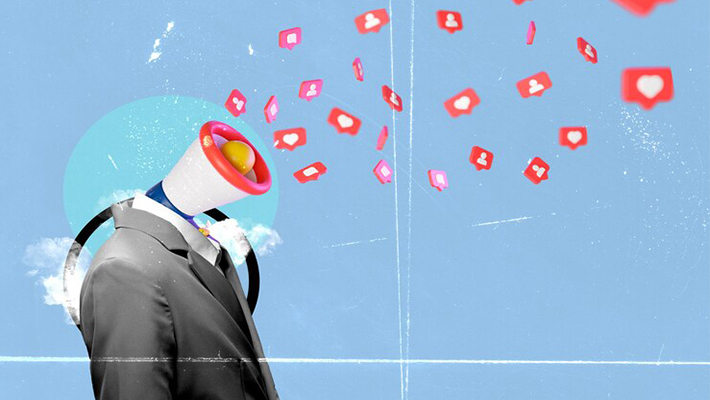
In today’s generation, phones have become an extended organ of the hand. Everyone is on social media, and everyone takes it very seriously. People have a lot to say; we often look at the happy and perfect moments that are shared on social media platforms and start comparing our lives to theirs. It is important to know that everyone has something going on with their lives and that nobody’s life is perfect.
People who continuously follow others' life updates through social media tend to feel worse about themselves, thus creating anxiety and depression symptoms. It is important to realize that everyone is special in a unique way. Try to avoid the usage of your phone before and after bed. Try to turn off notifications or delete social apps from your phone while you’re trying to concentrate on anything important.
“I have 30 million followers on Instagram, but that doesn’t mean I can sell 30 million tickets at the box office. There are stars with fewer than 5 million followers who are doing exceptionally well. Everyone must understand that social media isn’t a reflection of reality.”
– Pooja Hegde
Share more, worry less
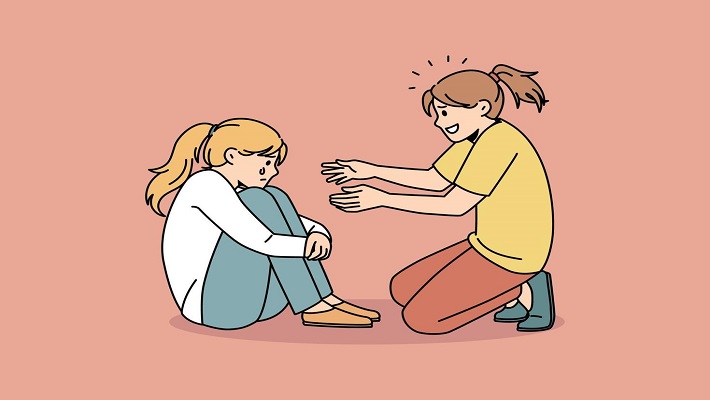
Your human nature as a social being makes strong relationships beneficial to your mental health through multiple beneficial effects. Friends help reduce loneliness and provide emotional support, which together creates purpose in life. Studies also state that catching up and joking around in person predicted closer bonds above and beyond the number of hours participants spent together. Always try to have one person who you can share anything with, be it your parent, your sibling, or your friends.
As normal human beings, we overthink a lot, leading to problems that seem bigger only in our heads. The moment you share it with someone, you get a different opinion, which might help you to recalibrate and help you overcome a situation more wisely.
Journal your feelings!

From the above, some of you might be wondering, what if I have nobody to talk to? Let the page hold what your heart can't. Journaling is a powerful method to cope with mental health disorders by working through emotions and channeling thoughts. There is no right or wrong way to journal. People keep journals as a daily practice but different individuals choose to write when they experience stress or wish to process certain matters. No matter how you use it, journaling is a way you can track your progress and growth throughout the year. Once you have the chance to read it after a year or so, trust me, you will have a great time going over it, making you go over a roller coaster of emotions.
Thank more, stress less
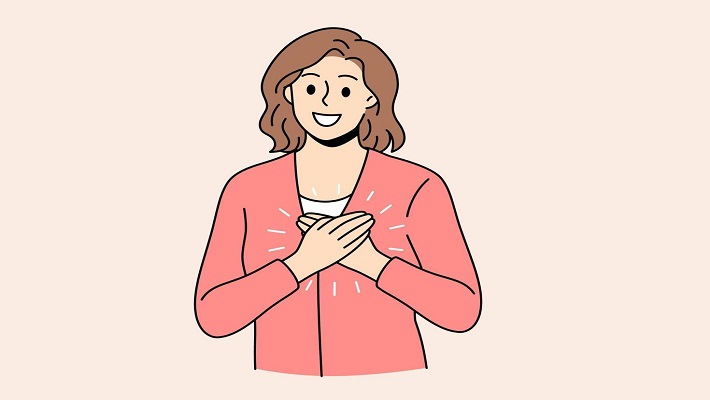
Including gratitude in life enables you to develop a positive perspective. Mental health benefits from gratitude include stress reduction while simultaneously decreasing depression symptoms and improving your mood. Grateful hearts glow brighter. Although gratitude remains a basic idea, it becomes challenging sometimes to maintain it in our lives. We only understand the value of something when it goes away from us, so always share your gratitude with the people around you. If you like to journal, regularly write down a list of things you're grateful for. Always remember that Grateful hearts glow brighter!
Conclusion
The condition of your mental health directly determines how good your overall life quality becomes. Extra advantages in your daily activities help improve mental health even though several health components fall outside your reach. Falling mental health conditions may indicate the need for consulting a therapist. The addition of professional support provides you with a valuable resource for your positive mental habits system.
A better state of mental health demands a continuous progression. It doesn't happen overnight. Know when to take it easy, and feel free to seek help!






